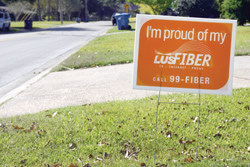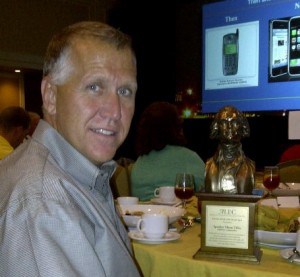
MSNBC: The hoi polloi of DC and beyond mingle at the MSNBC after party at the National Building Museum in Washington, D.C.
Comcast pays the bills.
After the inside-the-beltway media and a who’s who of D.C. political celebrities finished hobnobbing at this weekend’s White House Correspondents’ Dinner, Capitol Hill and White House staffers that usually spend their free time at Starbucks or the nearest watering hole were treated to something special this year, courtesy of everybody’s favorite cable company.
Comcast, using the MSNBC brand to keep things from being too obvious, splurged on an after-party-to-remember at the National Building Museum. Only a select crowd got invitations to the bash, featuring hand-rolled cigars and the best cigar cutters, Bravo’s Top Chef contestants preparing their signature dishes, an open bar, and plush couches to enjoy a set played by Jimmy Eat World.
“We see a lot of money thrown around D.C., but not money like this. They pulled out all the stops,” an insider who works closely with NBC told New York magazine. “I go to 200 events a year. And this is like, whoa.”
In addition to MSNBC’s on-air talent, the invitation list focused on Congress and White House staffers, a group normally left off the guest list of corporate-sponsored receptions and dinners.
It is no coincidence the bash was being paid for by Comcast, which is currently currying favor for its $45 billion deal to acquire Time Warner Cable.
“These are all staffers that go out for five-dollar happy hours; they don’t get invited to stuff like this,” the insider said.
“The committee staffers, they advise their bosses, the harried senators and congressmen who don’t have enough time to do their own research on whether or not the merger makes sense,” the insider added. They are going to come in here and they are going to drink and eat, they’re going to bring their girlfriend and they’re going to get laid, and then they’ll go, ‘Wow, this Comcast-Time Warner thing is not such a bad thing.'”


 Subscribe
Subscribe Viacom has blocked website content for Cable ONE customers in an escalating dispute with the cable company over the cost of the programmer’s cable networks.
Viacom has blocked website content for Cable ONE customers in an escalating dispute with the cable company over the cost of the programmer’s cable networks.



